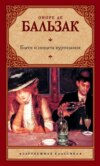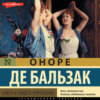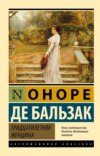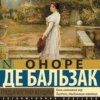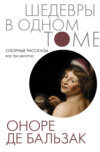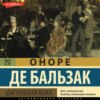Читать книгу: «Droll Stories – Complete», страница 3
HOW THE SENESCHAL STRUGGLED WITH HIS WIFE’S MODESTY
During the first days of his marriage the seneschal imprinted many fibs to tell his wife, whose so estimable innocence he abused. Firstly, he found in his judicial functions good excuses for leaving her at times alone; then he occupied himself with the peasants of the neighbourhood, and took them to dress the vines on his lands at Vouvray, and at length pampered her up with a thousand absurd tales.
At one time he would say that lords did not behave like common people, that the children were only planted at certain celestial conjunctions ascertained by learned astrologers; at another that one should abstain from begetting children on feast days, because it was a great undertaking; and he observed the feasts like a man who wished to enter into Paradise without consent. Sometimes he would pretend that if by chance the parents were not in a state of grace, the children commenced on the date of St. Claire would be blind, of St. Gatien had the gout, of St. Agnes were scaldheaded, of St. Roch had the plague; sometimes that those begotten in February were chilly; in March, too turbulent; in April, were worth nothing at all; and that handsome boys were conceived in May. In short, he wished his child to be perfect, to have his hair of two colours; and for this it was necessary that all the required conditions should be observed. At other times he would say to Blanche that the right of a man was to bestow a child upon his wife according to his sole and unique will, and that if she pretended to be a virtuous woman she should conform to the wishes of her husband; in fact it was necessary to await the return of the Lady of Azay in order that she should assist at the confinement; from all of which Blanche concluded that the seneschal was annoyed by her requests, and was perhaps right, since he was old and full of experience; so she submitted herself and thought no more, except to herself, of this so much-desired child, that is to say, she was always thinking of it, like a woman who has a desire in her head, without suspecting that she was behaving like a gay lady or a town-walker running after her enjoyment. One evening, by accident, Bruyn spoke of children, a discourse that he avoided as cats avoid water, but he was complaining of a boy condemned by him that morning for great misdeeds, saying for certain he was the offspring of people laden with mortal sins.
“Alas!” said Blanche, “if you will give me one, although you have not got absolution, I will correct so well that you will be pleased with him.”
Then the count saw that his wife was bitten by a warm desire, and that it was time to dissipate her innocence in order to make himself master of it, to conquer it, to beat it, or to appease and extinguish it.
“What, my dear, you wish to be a mother?” said he; “you do not yet know the business of a wife, you are not accustomed to being mistress of the house.”
“Oh! Oh!” said she, “to be a perfect countess, and have in my loins a little count, must I play the great lady? I will do it, and thoroughly.”
Then Blanche, in order to obtain issue, began to hunt the fawns and stags, leaping the ditches, galloping upon her mare over valleys and mountain, through the woods and the fields, taking great delight in watching the falcons fly, in unhooding them and while hunting always carried them gracefully upon her little wrist, which was what the seneschal had desired. But in this pursuit, Blanche gained an appetite of nun and prelate, that is to say, wished to procreate, had her desires whetted, and could scarcely restrain her hunger, when on her return she gave play to her teeth. Now by reason of reading the legends written by the way, and of separating by death the embraces of birds and wild beasts, she discovered a mystery of natural alchemy, while colouring her complexion, and superagitating her feeble imagination, which did little to pacify her warlike nature, and strongly tickled her desire which laughed, played, and frisked unmistakably. The seneschal thought to disarm the rebellious virtue of his wife by making her scour the country; but his fraud turned out badly, for the unknown lust that circulated in the veins of Blanche emerged from these assaults more hardy than before, inviting jousts and tourneys as the herald the armed knight.
The good lord saw then that he had grossly erred and that he was now upon the horns of a dilemma; also he no longer knew what course to adopt; the longer he left it the more it would resist. From this combat, there must result one conquered and one contused – a diabolical contusion which he wished to keep distant from his physiognomy by God’s help until after his death. The poor seneschal had already great trouble to follow his lady to the chase, without being dismounted; he sweated under the weight of his trappings, and almost expired in that pursuit wherein his frisky wife cheered her life and took great pleasure. Many times in the evening she wished to dance. Now the good man, swathed in his heavy clothing, found himself quite worn out with these exercises, in which he was constrained to participate either in giving her his hand, when she performed the vaults of the Moorish girl, or in holding the lighted fagot for her, when she had a fancy to do the torchlight dance; and in spite of his sciaticas, accretions, and rheumatisms, he was obliged to smile and say to her some gentle words and gallantries after all the evolutions, mummeries, and comic pantomimes, which she indulged in to divert herself; for he loved her so madly that if she had asked him for an impossibility he would have sought one for her immediately.
Nevertheless, one fine day he recognised the fact that his frame was in a state of too great debility to struggle with the vigorous nature of his wife, and humiliating himself before his wife’s virtue he resolved to let things take their course, relying a little upon the modesty, religion, and bashfulness of Blanche, but he always slept with one eye open, for he suspected that God had perhaps made virginities to be taken like partridges, to be spitted and roasted. One wet morning, when the weather was that in which the snails make their tracks, a melancholy time, and suitable to reverie, Blanche was in the house sitting in her chair in deep thought, because nothing produces more lively concoctions of the substantive essences, and no receipt, specific or philter is more penetrating, transpiercing or doubly transpiercing and titillating than the subtle warmth which simmers between the nap of the chair and a maiden sitting during certain weather.
Now without knowing it the Countess was incommoded by her innocence, which gave more trouble than it was worth to her brain, and gnawed her all over. Then the good man, seriously grieved to see her languishing, wished to drive away the thoughts which were ultra-conjugal principles of love.
“Whence comes your sadness, sweetheart?” said he.
“From shame.”
“What then affronts you?”
“The not being a good woman; because I am without a child, and you without lineage! Is one a lady without progeny? Nay! Look!.. All my neighbours have it, and I was married to have it, as you to give it to me; the nobles of Touraine are all amply furnished with children, and their wives give them lapfuls, you alone have none, they laugh at you there. What will become of your name and your fiefs and your seigniories? A child is our natural company; it is a delight to us to make a fright of it, to fondle it, to swaddle it, to dress and undress it, to cuddle it, to sing it lullabies, to cradle it, to get it up, to put it to bed, and to nourish it, and I feel that if I had only the half of one, I would kiss it, swaddle it, and unharness it, and I would make it jump and crow all day long, as the other ladies do.”
“Were it not that in giving them birth women die, and that for this you are still too delicate and too close in the bud, you would already be a mother,” replied the seneschal, made giddy with the flow of words. “But will you buy one ready-made? – that will cost you neither pain nor labour.”
“But,” said she, “I want the pain and labour, without which it will not be ours. I know very well it should be the fruit of my body, because at church they say that Jesus was the fruit of the Virgin’s womb.”
“Very well, then pray God that it may be so,” cried the seneschal, “and intercede with the Virgin of Egrignolles. Many a lady has conceived after the neuvaine; you must not fail to do one.”
Then the same day Blanche set out towards Notre-Dame de l’Egrignolles, decked out like a queen riding her beautiful mare, having on her a robe of green velvet, laced down with fine gold lace, open at the breast, having sleeves of scarlet, little shoes and a high hat ornamented with precious stones, and a gold waistband that showed off her little waist, as slim as a pole. She wished to give her dress to Madame the Virgin, and in fact promised it to her, for the day of her churching. The Sire de Montsoreau galloped before her, his eye bright as that of a hawk, keeping the people back and guarding with his knights the security of the journey. Near Marmoustiers the seneschal, rendered sleepy by the heat, seeing it was the month of August, waggled about in his saddle, like a diadem upon the head of a cow, and seeing so frolicsome and so pretty a lady by the side of so old a fellow, a peasant girl, who was squatting near the trunk of a tree and drinking water out of her stone jug inquired of a toothless old hag, who picked up a trifle by gleaning, if this princess was going to bury her dead.
“Nay,” said the old woman, “it is our lady of Roche-Corbon, wife of the seneschal of Poitou and Touraine, in quest of a child.”
“Ah! Ah!” said the young girl, laughing like a fly just satisfied; then pointing to the handsome knight who was at the head of the procession – “he who marches at the head would manage that; she would save the wax-candles and the vow.”
“Ha! my little one,” replied the hag, “I am rather surprised that she should go to Notre-Dame de l’Egrignolles seeing that there are no handsome priests there. She might very well stop for a short time beneath the shadow the belfry of Marmoustiers; she would soon be fertile, those good fathers are so lively.”
“By a nun’s oath!” said a tramp walking up, “look; the Sire de Montsoreau is lively and delicate enough to open the lady’s heart, the more so as he is well formed to do so.”
And all commenced a laugh. The Sire de Montsoreau wished to go to them and hang them in lime-tree by the road as a punishment for their bad words, but Blanche cried out quickly —
“Oh, sir, do not hang them yet. They have not said all they mean; and we shall see them on our return.”
She blushed, and the Sire de Montsoreau looked at her eagerly, as though to shoot into her the mystic comprehensions of love, but the clearing out of her intelligence had already been commenced by the sayings of the peasants which were fructifying in her understanding – her innocence was like touchwood, there was only need for a word to inflame it.
Thus Blanche perceived now the notable and physical differences between the qualities of her old husband and perfections of the said Gauttier, a gentleman who was not over affected with his twenty-three years, but held himself upright as a ninepin in the saddle, and as wide-awake as the matin chimes, while in contrast to him, slept the seneschal; he had courage and dexterity there where his master failed. He was one of those smart fellows whom the jades would sooner wear at night than a leathern garment, because they then no longer fear the fleas; there are some who vituperate them, but no one should be blamed, because every one should sleep as he likes.
So much did the seneschal’s lady think, and so imperially well, that by the time she arrived at the bridge of Tours, she loved Gauttier secretly, as a maiden loves, without suspecting that it is love. From that she became a proper woman, that is to say, she desired the good of others, the best that men have, she fell into a fit of love-sickness, going at the first jump to the depth of her misery, seeing that all is flame between the first coveting and the last desire, and she knew not how she then learned that by the eyes can flow in a subtle essence, causing such powerful corrosions in all the veins of the body, recesses of the heart, nerves of the members, roots of the hair, perspiration of the substance, limbo of the brain, orifices of the epidermis, windings of the pluck, tubes of the hypochondriac and other channels which in her was suddenly dilated, heated, tickled, envenomed, clawed, harrowed, and disturbed, as if she had a basketful of needles in her inside. This was a maiden’s desire, a well-conditioned desire, which troubled her sight to such a degree that she no longer saw her old spouse, but clearly the young Gauttier, whose nature was as ample as the glorious chin of an abbot. When the good man entered Tours the Ah! Ah! of the crowd woke him up, and he came with great pomp with his suite to the Church of Notre-Dame de l’Egrignolles, formerly called la greigneur, as if you said that which has the most merit. Blanche went into the chapel where children are asked to God and of the Virgin, and went there alone, as was the custom, always however in the presence of the seneschal, of his varlets and the loiterers who remained outside the grill. When the countess saw the priest come who had charge of the masses said for children, and who received the said vows, she asked him if there were many barren women. To which the good priest replied, that he must not complain, and that the children were good revenue to the Church.
“And do you often see,” said Blanche, “young women with such old husbands as my lord?”
“Rarely,” said he.
“But have those obtained offspring?”
“Always,” replied the priest smiling.
“And the others whose companions are not so old?”
“Sometimes.”
“Oh! Oh!” said she, “there is more certainty then with one like the seneschal?”
“To be sure,” said the priest.
“Why?” said she.
“Madame,” gravely replied priest, “before that age God alone interferes with the affair, after, it is the men.”
At this time it was a true thing that all the wisdom had gone to the clergy. Blanch made her vow, which was a very profitable one, seeing that her decorations were worth quite two thousand gold crowns.
“You are very joyful!” said the old seneschal to her when on the home journey she made her mare prance, jump, and frisk.
“Yes, yes!” said she. “There is no longer any doubt about my having a child, because any one can help me, the priest said: I shall take Gauttier.”
The seneschal wished to go and slay the monk, but he thought that was a crime which would cost him too much, and he resolved cunningly to arrange his vengeance with the help of the archbishop; and before the housetops of Roche-Corbon came in sight he had ordered the Sire de Montsoreau to seek a little retirement in his own country, which the young Gauttier did, knowing the ways of the lord. The seneschal put in the place of the said Gauttier the son of the Sire de Jallanges, whose fief was held from Roche-Corbon. He was a young boy named Rene, approaching fourteen years, and he made him a page, awaiting the time when he should be old enough to be an equerry, and gave the command of his men to an old cripple, with whom he had knocked about a great deal in Palestine and other places. Thus the good man believed he would avoid the horned trappings of cuckoldom, and would still be able to girth, bridle, and curb the factious innocence of his wife, which struggled like a mule held by a rope.
THAT WHICH IS ONLY A VENIAL SIN
The Sunday following the arrival of Rene at the manor of Roche-Corbon, Blanche went out hunting without her goodman, and when she was in the forest near Les Carneaux, saw a monk who appeared to be pushing a girl about more than was necessary, and spurred on her horse, saying to her people, “Ho there! Don’t let him kill her.” But when the seneschal’s lady arrived close to them, she turned her horse’s head quickly and the sight she beheld prevented her from hunting. She came back pensive, and then the lantern of her intelligence opened, and received a bright light, which made a thousand things clear, such as church and other pictures, fables, and lays of the troubadours, or the domestic arrangements of birds; suddenly she discovered the sweet mystery of love written in all languages, even in that of the Carps’. Is it not silly thus to seal this science from maidens? Soon Blanche went to bed, and soon said she to the seneschal —
“Bruyn, you have deceived me, you ought to behave as the monk of the Carneaux behaved to the girl.”
Old Bruyn suspected the adventure, and saw well that his evil hour was at hand. He regarded Blanche with too much fire in his eyes for the same ardour to be lower down, and answered her softly —
“Alas! sweetheart, in taking you for my wife I had more love than strength, and I have taken advantage of your clemency and virtue. The great sorrow of my life is to feel all my capability in my heart only. This sorrow hastens my death little by little, so that you will soon be free. Wait for my departure from this world. That is the sole request that he makes of you, he who is your master, and who could command you, but who wishes only to be your prime minister and slave. Do not betray the honour of my white hairs! Under these circumstances there have been lords who have slain their wives.
“Alas! you will not kill me?” said she.
“No,” replied the old man, “I love thee too much, little one; why, thou art the flower of my old age, the joy of my soul. Thou art my well-beloved daughter; the sight of thee does good to mine eyes, and from thee I could endure anything, be it a sorrow or a joy, provided that thou does not curse too much the poor Bruyn who has made thee a great lady, rich and honoured. Wilt thou not be a lovely widow? And thy happiness will soften the pangs of death.”
And he found in his dried-up eyes still one tear which trickled quite warm down his fir-cone coloured face, and fell upon the hand of Blanche, who, grieved to behold this great love of her old spouse who would put himself under the ground to please her, said laughingly —
“There! there! don’t cry, I will wait.”
Thereupon the seneschal kissed her hands and regaled her with little endearments, saying with a voice quivering with emotion —
“If you knew, Blanche my darling, how I devour thee in thy sleep with caresses, now here, now there!” And the old ape patted her with his two hands, which were nothing but bones. And he continued, “I dared not waken the cat that would have strangled my happiness, since at this occupation of love I only embraced with my heart.”
“Ah!” replied she, “you can fondle me thus even when my eyes are open; that has not the least effect upon me.”
At these words the poor seneschal, taking the little dagger which was on the table by the bed, gave it to her, saying with passion —
“My darling, kill me, or let me believe that you love me a little!”
“Yes, yes,” said she, quite frightened, “I will try to love you much.”
Behold how this young maidenhood made itself master of this old man and subdued him, for in the name of the sweet face of Venus, Blanche, endowed with the natural artfulness of women, made her old Bruyn come and go like a miller’s mule.
“My good Bruyn, I want this! Bruyn, I want that – go on Bruyn!” Bruyn! Bruyn! And always Bruyn in such a way that Bruyn was more worn-out by the clemency of his wife than he would have been by her unkindness. She turned his brain wishing that everything should be in scarlet, making him turn everything topsy-turvy at the least movement of her eyebrow, and when she was sad the seneschal distracted, would say to everything from his judicial seat, “Hang him!” Another would have died like a fly at this conflict with the maid’s innocence, but Bruyn was of such an iron nature that it was difficult to finish him off. One evening that Blanche had turned the house upside-down, upset the men and the beasts, and would by her aggravating humour have made the eternal father desperate – he who has such an infinite treasure of patience since he endures us – she said to the seneschal while getting into bed, “My good Bruyn, I have low down fancies, that bite and prick me; thence they rise into my heart, inflame my brain, incite me therein to evil deeds, and in the night I dream of the monk of the Carneaux.”
“My dear,” replied the seneschal, “these are devilries and temptations against which the monks and nuns know how to defend themselves. If you will gain salvation, go and confess to the worthy Abbot of Marmoustiers, our neighbour; he will advise you well and will holily direct you in the good way.”
“Tomorrow I will go,” said she.
And indeed directly it was day, she trotted off to the monastery of the good brethren, who marvelled to see among them so pretty a lady; committed more than one sin through her in the evening; and for the present led her with great ceremony to their reverend abbot.
Blanche found the said good man in a private garden near the high rock under a flower arcade, and remained stricken with respect at the countenance of the holy man, although she was accustomed not to think much of grey hairs.
“God preserve you, Madame; what can you have to seek of one so near death, you so young?”
“Your precious advice,” said she, saluting him with a courtesy; “and if it will please you to guide so undutiful a sheep, I shall be well content to have so wise a confessor.”
“My daughter,” answered the monk, with whom old Bruyn had arranged this hypocrisy and the part to play, “if I had not the chills of a hundred winters upon this unthatched head, I should not dare to listen to your sins, but say on; if you enter paradise, it will be through me.”
Then the seneschal’s wife set forth the small fry of her stock in hand, and when she was purged of her little iniquities, she came to the postscript of her confession.
“Ah! my father!” said she, “I must confess to you that I am daily exercised by the desire to have a child. Is it wrong?”
“No,” said the abbot.
But she went on, “It is by nature commanded to my husband not to draw from his wealth to bring about his poverty, as the old women say by the way.”
“Then,” replied the priest, “you must live virtuously and abstain from all thoughts of this kind.”
“But I have heard it professed by the Lady of Jallanges, that it was not a sin when from it one derived neither profit nor pleasure.”
“There always is pleasure,” said the abbot, “but don’t count upon the child as a profit. Now fix this in your understanding, that it will always be a mortal sin before God and a crime before men to bring forth a child through the embraces of a man to whom one is not ecclesiastically married. Thus those women who offend against the holy laws of marriage, suffer great penalties in the other world, are in the power of horrible monsters with sharp and tearing claws, who thrust them into flaming furnaces in remembrance of the fact that here below they have warmed their hearts a little more than was lawful.”
Thereupon Blanche scratched her ear, and having thought to herself for a little while, she said to the priest, “How then did the Virgin Mary?”
“Ah!” replied abbot, “that it is a mystery.”
“And what is a mystery?”
“A thing that cannot be explained, and which one ought to believe without enquiring into it.”
“Well then,” said she, “cannot I perform a mystery?”
“This one,” said the Abbot, “only happened once, because it was the Son of God.”
“Alas! my father, is it then the will of God that I should die, or that from wise and sound comprehension my brain should be turned? Of this there is a great danger. Now in me something moves and excites me, and I am no longer in my senses. I care for nothing, and to find a man I would leap the walls, dash over the fields without shame and tear my things into tatters, only to see that which so much excited the monk of the Carneaux; and during these passions which work and prick my mind and body, there is neither God, devil, nor husband. I spring, I run, I smash up the wash-tubs, the pots, the farm implements, a fowl-house, the household things, and everything, in a way that I cannot describe. But I dare not confess to you all my misdeeds, because speaking of them makes my mouth water, and the thing with which God curses me makes me itch dreadfully. If this folly bites and pricks me, and slays my virtue, will God, who has placed this great love in my body, condemn me to perdition?”
At this question it was the priest who scratched his ear, quite dumbfounded by the lamentations, profound wisdom, controversies and intelligence that this virginity secreted.
“My daughter,” said he, “God has distinguished us from the beasts and made us a paradise to gain, and for this given us reason, which is a rudder to steer us against tempests and our ambitious desires, and there is a means of easing the imaginations of one’s brain by fasting, excessive labours, and other virtues; and instead of frisking and fretting like a child let loose from school, you should pray to the virgin, sleep on a hard board, attend to your household duties, and never be idle.”
“Ah! my father, when I am at church in my seat, I see neither the priest nor the altar, only the infant Jesus, who brings the thing into my head. But to finish, if my head is turned and my mind wanders, I am in the lime-twigs of love.”
“If thus you were,” said the abbot, imprudently, “you would be in the position of Saint Lidoire, who in a deep sleep one day, one leg here and one leg there, through the great heat and scantily attired, was approached by a young man full of mischief, who dexterously seduced her, and as of this trick the saint was thoroughly ignorant, and much surprised at being brought to bed, thinking that her unusual size was a serious malady, she did penance for it as a venial sin, as she had no pleasure in this wicked business, according to the statement of the wicked man, who said upon the scaffold where he was executed, that the saint had in nowise stirred.”
“Oh, my father,” said she, “be sure that I should not stir more than she did!”
With this statement she went away prettily and gracefully, smiling and thinking how she could commit a venial sin. On her return from the great monastery, she saw in the courtyard of her castle the little Jallanges, who under the superintendence of an old groom was turning and wheeling about on a fine horse, bending with the movements of the animal, dismounting and mounting again with vaults and leaps most gracefully, and with lissome thighs, so pretty, so dextrous, so upright as to be indescribable, so much so, that he would have made the Queen Lucrece long for him, she who killed herself from having been contaminated against her will.
“Ah!” said Blanche, “if only this page were fifteen, I would go to sleep comfortably very near to him.”
Then, in spite of the too great youth of this charming servitor, during the collation and supper, she eyed frequently the black hair, the white skin, the grace of Rene, above all his eyes, where was an abundance of limpid warmth and a great fire of life, which he was afraid to shoot out – child that he was.
Now in the evening, as the seneschal’s wife sat thoughtfully in her chair in the corner of the fireplace, old Bruyn interrogated her as to her trouble.
“I am thinking.” said she, “that you must have fought the battles of love very early, to be thus completely broken up.”
“Oh!” smiled he, smiling like all old men questioned upon their amorous remembrances, “at the age of thirteen and a half I had overcome the scruples of my mother’s waiting woman.”
Blanche wished to hear nothing more, but believed the page Rene should be equally advanced, and she was quite joyous and practised little allurements on the good man, and wallowed silently in her desire, like a cake which is being floured.












